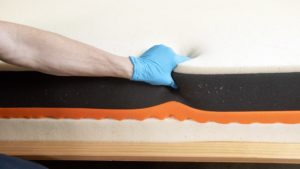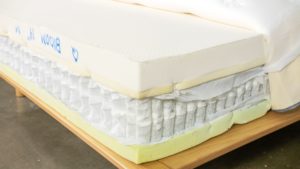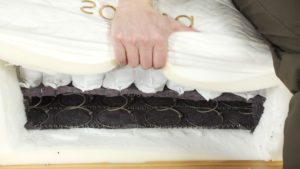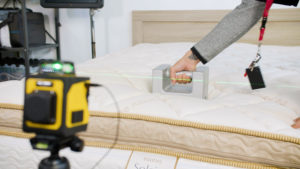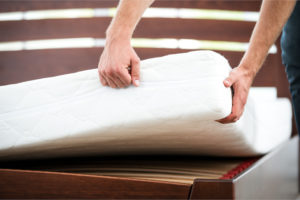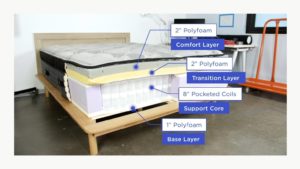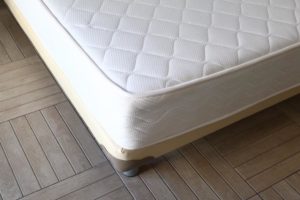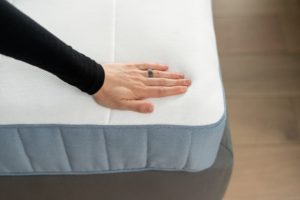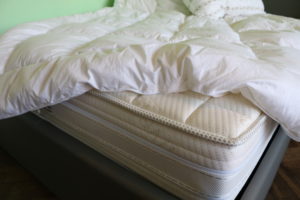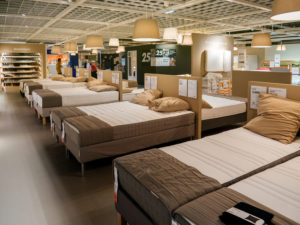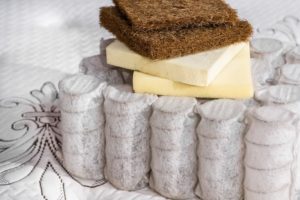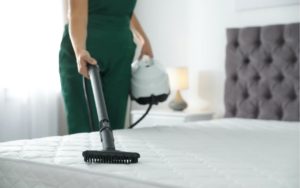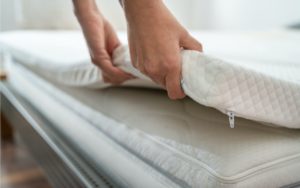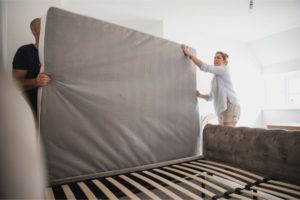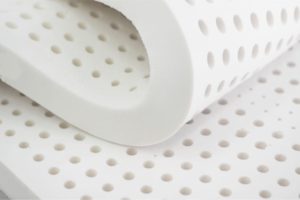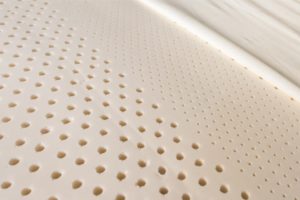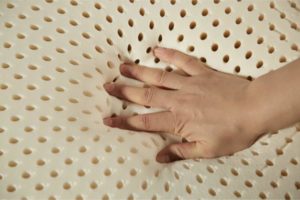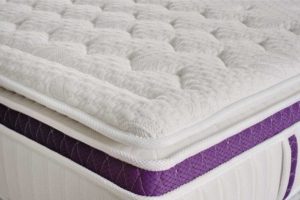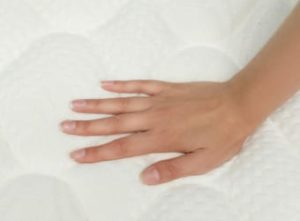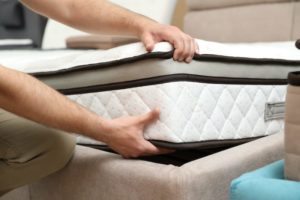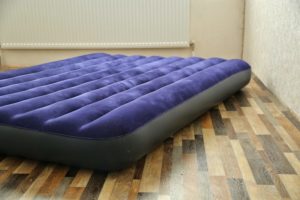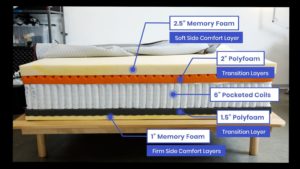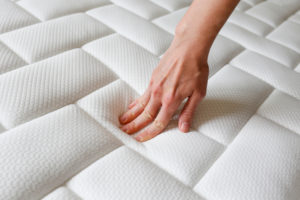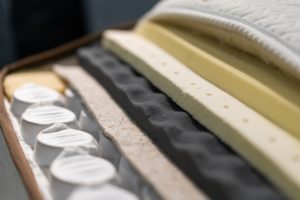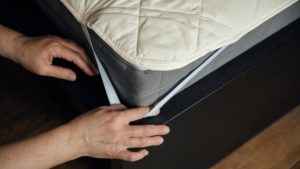When you buy through our links, we may earn a commission. Products or services may be offered by an affiliated entity. Learn more.
How Is Foam Density Measured?
Most modern mattresses are made using various layers of foam material. Commonly used foams include polyfoam, latex, and memory foam. Within each category of foam, one may find dozens of variations in density and firmness. Because foam density is such a significant factor in the performance and feel of each mattress, it’s a good idea for mattress shoppers to understand foam density measurements.
This article will explain how foam density is measured, and what these measurements actually mean. It will also help guide prospective mattress buyers to select a bed with the proper foam density for their own comfort preferences.
Let us help you find the perfect bed
Answer a few questions to find the right mattress for your unique needs
How Is Foam Density Measured?
Density is simply a measurement of weight per unit of volume. In the case of foam, it is measured in pounds per cubic foot (PCF). In other words, the density of foam is expressed by measuring the weight of a single cubic foot of foam material.
As an example, consider a foam layer that weighs 100 pounds and measures 25 cubic feet in total. By dividing the total weight by the total number of cubic feet (100 divided by 25, in this case), we can see that this layer has a density of 4 pounds per cubic foot (4 PCF).
Most manufacturers will list the various materials they use and the density measurements for each foam component. In general, you can expect to see foam densities ranging from 1.5 PCF to 5 PCF or more. A table covering the various density ranges for foams can be found below.
| Material | Low-Density | Medium-Density | High-Density |
| Memory Foam | Less than 3 PCF | 3 to 5 PCF | More than 5 PCF |
| Polyfoam | Less than 1.5 PCF | 1.5 to 1.7 PCF | More than 1.7 PCF |
As you can see from the table, the range that is considered “high density” for polyfoam is much different than the same range for memory foam. This is due to the different properties of each material. This disconnect can also make it somewhat confusing to compare foam densities on multiple mattresses. When comparison shopping, be sure to double check the type(s) of foam, and not just the density rating.
What Does Foam Density Mean?
We’ve covered how foam density is measured, and how to calculate it – but what does it actually mean?
Density has a significant influence on how the foam feels and performs. Foams with a high density will generally feel more firm, and can withstand more pressure. Conversely, low-density foams will feel softer, but cannot withstand excessive pressure or weight.
When it comes to memory foam in particular, higher-density foams recover more slowly after pressure is applied to it. This produces that quality that memory foam is known for, where an impression from your body or object lasts in the foam for a few seconds.
Because of these properties, manufacturers often use a mix of foams with various density ratings. Mattress support cores typically utilize high-density polyfoam or latex, while comfort layers utilize foams of a variety of densities. You may see 2-4 separate layers of different foam materials in a single mattress, each of which may have a substantially different density rating.
Density can also influence a mattress’ responsiveness, durability, motion isolation, and cost. Denser foams are typically more durable than low-density foams, and will not sag as much over time. On the other hand, low-density foams tend to offer better temperature regulation, which can be an important factor for those living in warm climates. The section below goes over some other factors to consider.
How Foam Density Affects Mattress Performance
Durability
Denser foams are more durable and tend to outlast lower-density materials. They are less susceptible to sagging, and also more resistant to accidental damage and tears.
Conforming/Pressure Relief
Higher-density foams generally conform closer than low-density foams and thus offer better pressure relief than lower-density foams. By molding closer to the sleeper’s body, less pressure builds up around the back and shoulders.
Temperature Neutrality
Lower-density foams tend to perform better in this category. They offer better airflow, and do not absorb as much body heat, compared to high-density foam materials.
Sex
Lower-density foams tend to be a bit more springy, while also feeling less hard. For these reasons, low- to medium-density foams tend to perform best for sex.
Mattress Weight
Low-density foams weigh much less than high-density materials. A bed utilizing primarily low-density foam will typically weigh between 50 and 60 pounds, while a high-density foam mattress may weigh 90 pounds or more.
Price
Denser foam materials are typically more costly to produce than lower-density foams, and this cost difference is usually reflected in the final mattress price.
Density and Mattress Firmness
The density of foam materials used and a mattress’ overall firmness are certainly related; however, they are not the same thing.
The firmness of a mattress is determined by the entire composition of the bed. Each distinct layer, including various foam comfort layers, support cores, and even metal springs where relevant, all contribute to how a mattress feels.
A mattress may be topped with a relatively low-density foam comfort layer, but still feel like a firm mattress overall. Conversely, mattresses with very high-density support cores can still feel soft overall.
In summary, density is a measure of individual components of a mattress. Firmness is a measure of the entire mattress.

Still have questions? Ask our community!
Join our Sleep Care Community — a trusted hub of sleep health professionals, product specialists, and people just like you. Whether you need expert sleep advice for your insomnia or you’re searching for the perfect mattress, we’ve got you covered. Get personalized guidance from the experts who know sleep best.

